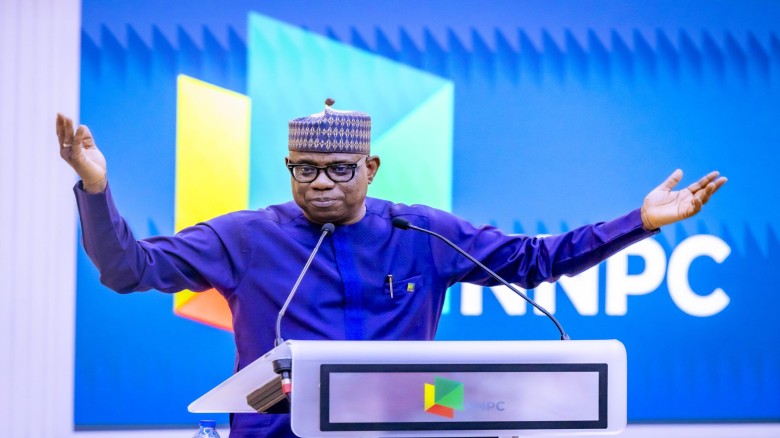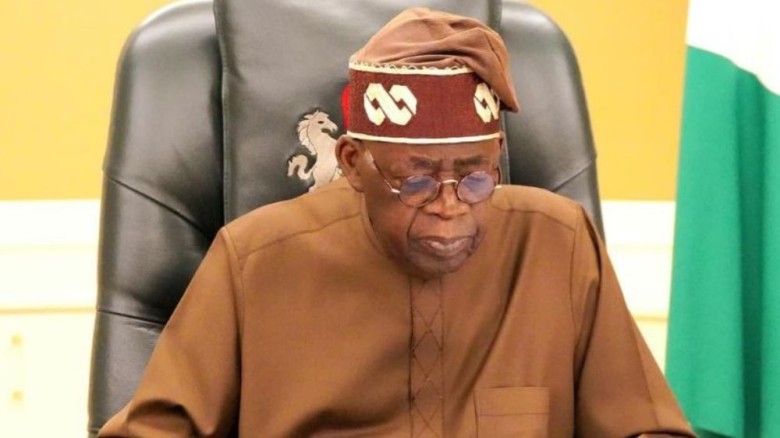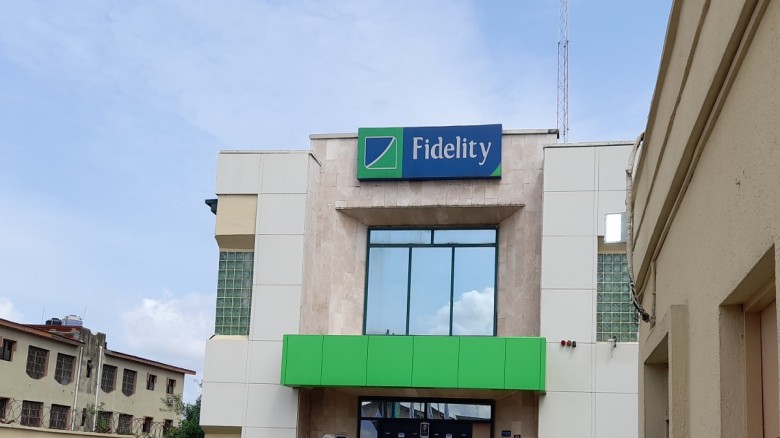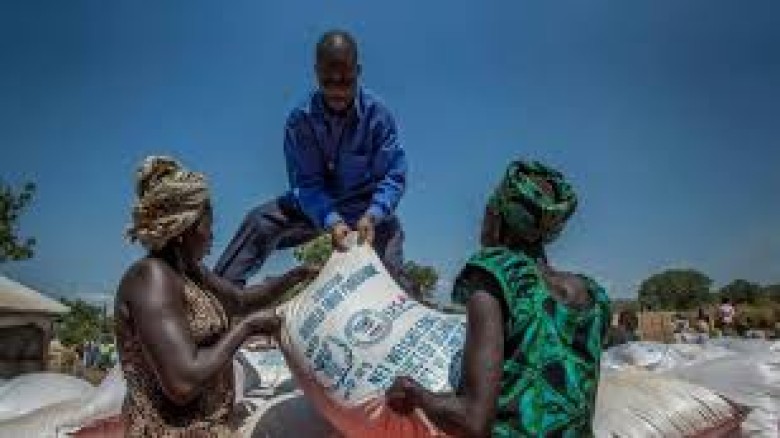W’Bank to approve Nigeria’s $632m loan request today
The World Bank is set to approve new loans totaling $632 million to Nigeria today (Monday), amid mounting concerns about the country's rising debt profile.The loans are intended to support critical areas such as nutrition improvement and quality basic education.
According to data obtained from the World Bank's website on Sunday, the two loans expected to be approved today are $80 million for the Accelerating Nutrition Results in Nigeria 2.0 project and $552 million for the HOPE for Quality Basic Education for All programme.
Both projects are currently in the negotiating phase and are expected to receive final approval later today. These new loans are part of the World Bank's overall strategy to support Nigeria's development agenda, which focuses on healthcare, education, and community resilience.
The loans are expected to help the government improve nutrition outcomes and provide more access to quality education for Nigerian children.
Meanwhile, the World Bank approved a $500 million loan for Nigeria last Friday to support the country's Community Action for Resilience and Economic Stimulus Programme.
The approval, which occurred on March 28, 2025, was a significant step toward addressing Nigeria's economic challenges by increasing access to livelihood support, food security services, and grants for poor and vulnerable households and businesses.
The program, officially known as the NIGERIA: Community Action (for) Resilience and Economic Stimulus Programme, is intended to provide critical support to households affected by economic downturns while also strengthening community resilience.
The initiative focuses on vulnerable populations, providing grants to households and small businesses to help them cope with economic hardship.
The loan approval is expected to significantly boost Nigeria's efforts to stimulate the economy through grassroots support, especially given current challenges such as inflation and high living costs. The stimulus package will prioritize improving food security and creating economic opportunities for the communities most affected by recent economic fluctuations.
This approval came after a delay in releasing funds for a previous loan aimed at poor and vulnerable Nigerians.
Further investigation by The PUNCH revealed that the World Bank disbursed approximately $315 million to Nigeria from the $800 million approved for the National Social Safety-Net Program Scale Up.
Nigeria has yet to receive additional funds from the World Bank for this loan project, which was approved in December 2021. The delay in fund disbursement is most likely due to fraud detected under the programme.
In honor of the 2023 International Day for the Eradication of Poverty, President Bola Tinubu launched a social safety net program that will distribute N25,000 to 15 million households over the course of three months. The Federal Ministry of Humanitarian Affairs and Poverty Alleviation was tasked with managing the $800 million World Bank loan project.
However, due to allegations of misappropriation, the Federal Government was forced to suspend the cash transfer program for further investigation and reform.
Betta Edu, a former humanitarian minister, was previously suspended for misappropriating N585 million set aside for palliative care distribution.
Furthermore, Sadiya Umar-Farouq, Edu's predecessor, was under investigation by the EFCC. The former minister is being investigated for allegedly laundering N37.1 billion during her tenure as minister.
The World Bank also imposed sanctions on individuals and businesses found to be engaging in fraud under the programmes.
Previously, The PUNCH reported that the Federal Government would likely receive six new loans totaling $2.23 billion from the World Bank in 2025 as the international financial institution continues to support the country's economic and structural reform efforts.
According to the World Bank's official website, this will bring Nigeria's total approved loans to $9.25 billion over three years, indicating a growing reliance on multilateral funding to support critical sectors of the economy such as infrastructure, healthcare, education, and financial resilience.
An analysis of Nigeria's World Bank loan approvals since 2023, under President Bola Tinubu's administration, reveals a significant increase in funding commitments.
In 2023, the World Bank approved loans totaling $2.7 billion for projects in renewable energy, women's empowerment, education, and the power sector.
The funding approvals recorded in 2024 significantly exceeded those of the previous year, with a total of $4.32 billion allocated to various projects. This increase was largely driven by Nigeria's growing need for financial assistance to stabilize its economy in the face of mounting fiscal pressures and rising public debt.
Nigeria plans to secure six new World Bank loans totaling $2.23 billion by 2025. The planned loans cover key sectors, such as digital infrastructure, healthcare, education, nutrition, and community resilience.
Under President Bola Tinubu's administration, the World Bank approved approximately 11 different loan projects for Nigeria.
In less than two years, the federal government has secured loans from the World Bank totaling $7.45 billion, raising concerns about the growing debt burden. According to data from the Debt Management Office, the World Bank's share of Nigeria's external debt is $17.32 billion as of the third quarter 2024.
The International Development Association is owed the majority of this debt, which amounts to $16.84 billion, or 39.14 percent of Nigeria's total external debt. The International Bank for Reconstruction and Development, another World Bank subsidiary, is owed $485.08 million, or 1.13 percent.
While the proposed World Bank loans may provide much-needed fiscal relief, concerns remain about the country's rising debt burden. According to recent data from the Central Bank of Nigeria, the country has spent $5.47 billion servicing external debt in the last 14 months, highlighting the strain on its foreign reserves.
Wale Edun, Minister of Finance and Coordinating Minister of the Economy, previously stated that rather than incurring additional debt, the government is focusing on alternative funding sources such as revenue generation, concessional loans, and strategic investments.
"We are in the optimisation stage, which means there is less emphasis on borrowing, particularly from the commercial markets, which are quite active. "We are focusing more on asset optimization and attracting private sector investment, both domestic and foreign," Edun stated.
However, the World Bank's consistent increase in financial commitments to Nigeria, from $2.7 billion in 2023 to $4.32 billion in 2024, and an expected $2.23 billion in 2025, demonstrates the country's growing reliance on concessional financing to drive structural reforms and public sector investments.
As Nigeria navigates its debt challenges, experts emphasize the importance of efficient fund utilization and transparent project execution to ensure that these loans produce meaningful economic and social benefits.
Speaking with PUNCH on Sunday, development economist Dr Aliyu Ilias expressed concern about Nigeria's borrowing strategy, stating that while borrowing is not inherently bad, it has become problematic given the country's current economic situation.
"I think borrowing itself is not bad, but at the point Nigeria is now, borrowing is becoming a bad thing," according to him.
Ilias noted that borrowing was heavily criticised during the administration of former President Muhammadu Buhari, and many had hoped that the current government would avoid incurring new debt.
He noted that the Tinubu administration has generated more revenue than previous governments since the Fourth Republic in 1999.
He cited several revenue-generating measures implemented by the current government, including the elimination of fuel subsidies, increased electricity tariffs for Band A, and proposed tax reforms.
He also mentioned that the Federal Government announced a significant increase in revenue for the Federal Inland Revenue Service earlier this year, resulting in an upward adjustment to the national budget.
Ilias questioned the rationale for additional borrowing despite the revenue gains, arguing that the government should focus on managing existing resources more efficiently.
He also criticized the use of the debt-to-GDP ratio as a measure of debt sustainability, warning that the proposed GDP rebasing could lead to increased borrowing.
"I was expecting that in the first four years of President Bola Tinubu's administration, the government would not embark on borrowing," he told reporters.
In a related development, during a media interaction in Abuja over the weekend, Dr Tayo Aduloju, Chief Executive Officer of the Nigerian Economic Summit Group, advocated for a more strategic approach to borrowing.
He stated, "We need to be creative about the borrowing plan. How much we need to borrow domestically. How much external borrowing do we need, and at what cost?"
Aduloju emphasised the importance of balancing domestic and external borrowing while prioritizing critical infrastructure projects and ensuring disciplined financing.
He stated that a well-planned borrowing strategy could improve project execution and public perception.
He also advocated for a more sustainable economic model, one based on foreign direct investment rather than excessive borrowing.
























Leave A Comment